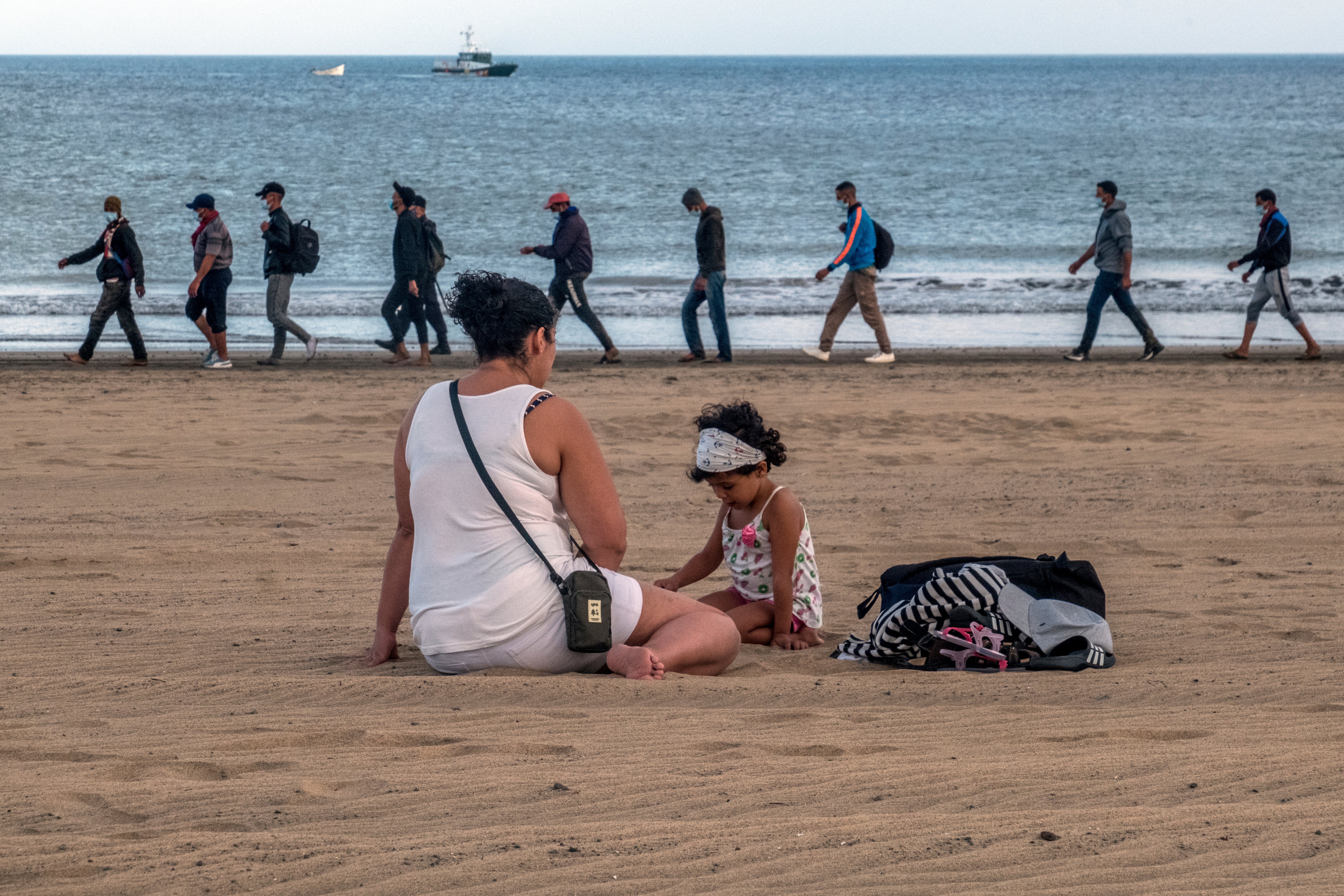Spain to build Canary Islands migrant camps after 900% rise in arrivals
The camps will be built on military bases on three islands

Your support helps us to tell the story
From reproductive rights to climate change to Big Tech, The Independent is on the ground when the story is developing. Whether it's investigating the financials of Elon Musk's pro-Trump PAC or producing our latest documentary, 'The A Word', which shines a light on the American women fighting for reproductive rights, we know how important it is to parse out the facts from the messaging.
At such a critical moment in US history, we need reporters on the ground. Your donation allows us to keep sending journalists to speak to both sides of the story.
The Independent is trusted by Americans across the entire political spectrum. And unlike many other quality news outlets, we choose not to lock Americans out of our reporting and analysis with paywalls. We believe quality journalism should be available to everyone, paid for by those who can afford it.
Your support makes all the difference.Spain has bowed to mounting pressure from human rights groups and agreed to build migrant camps on the Canary Islands.
Three military bases in Tenerife, Fuerteventura and Gran Canaria will be adapted to house migrants currently living in a makeshift camp.
More than 1,500 African migrants have been living in tents on the Arguineguin dockside in the tourist resort of Mogán after reception centres filled up as arrival numbers to the Spanish archipelago soared this year.
After nearly 2,200 migrants arrived last week, resources were stretched even further, prompting calls for help from regional chiefs.
Aid groups including Amnesty International and Human Rights Watch have criticised the conditions in which migrants were living in the islands.
Carolina Darias, the Spanish territories minister, told a press conference on Friday: “The objective is to help migrants, especially those living in the dock of Arguineguin, and this will mean to return [the dock] to the use it has always had as soon as possible.”
Over 16,000 migrants have made the perilous route from western Africa to the Spanish archipelago this year, a 900 per cent rise compared with last year.
Migrants heading for the Canary Islands represent 57 per cent of all refugees heading to the European Union, according to the Spanish government.
Judith Sunderland, acting deputy Europe and Central Asia director at Human Rights Watch, visited the camp at Arguineguin last week.
“What I saw a few days ago was a row of crowded tents where people are held for days on end, sleeping on the ground, 30 to 40 people sharing a portable toilet,” she told journalists earlier this week.
“I cannot imagine the situation now with over double the people. Even assuming the best intentions of those working there, these conditions do not respect people's dignity or basic rights, nor do they reflect well on Spain.”
Ms Darias also announced Spain will crack down on people smugglers by deploying three patrol boats and a spotter plane in the waters off West Africa.
Spanish police will also be stationed in Mauritania, one of the main countries of origin for migrants.
Seaborne migration to the Canaries, which lie about 100km (60 miles) off Morocco’s west coast, has risen tenfold this year, but it is far from the peak of more than 30,000 arrivals in 2006.
Heightened security in Morocco as well as economic hardship caused by the Covid-19 pandemic has meant more migrants are risking their lives by setting off from western Africa towards the Canary Islands.
The route is fraught with danger for the migrants who risk everything by crossing over in basic wooden boats.
Coastguards rescued 86 migrants off the Canary Islands on Friday who were travelling in three small boats.
It brought to 302 the number of arrivals in the past 24 hours. Twelve of these had to be treated in hospital and one died later.
About 140 migrants died after their boat caught fire and capsized off the coast of Senegal last month.

Join our commenting forum
Join thought-provoking conversations, follow other Independent readers and see their replies
Comments